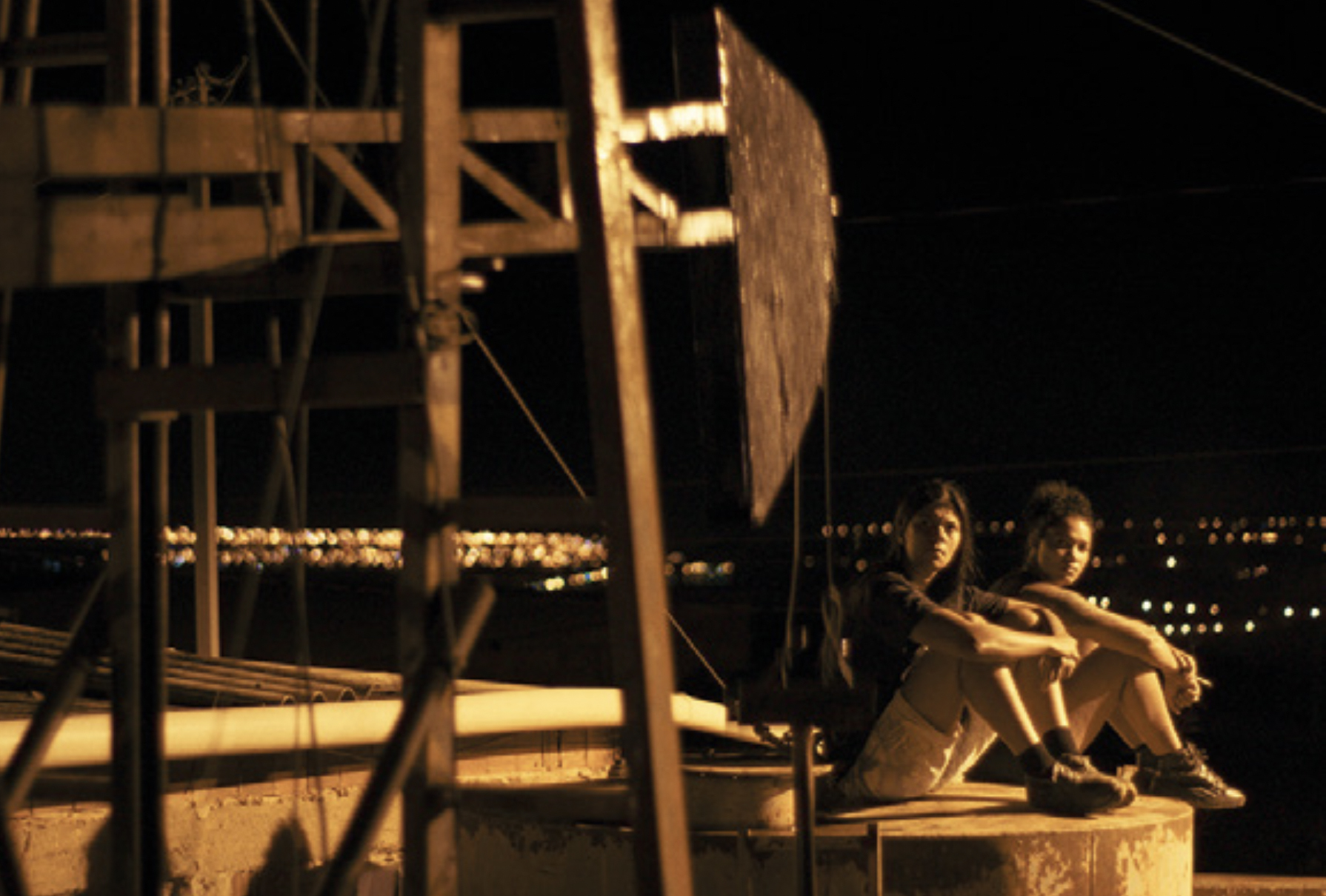Mato seco em chamas (Dry Ground Burning)

“I was remembering the time... That I got wrapped up in some crazy shit with my sister Chitara. My sister made history in Sol Nascente. That was in 2019. I’d just got out of prison for drug charges. My sister asked me to be a part of this crazy scheme she was caught up in. She got a hold of a map of underground oil pipes. She got it and then... she bought a lot in Sol Nascente. The oil pipes ran right under her land. She started making a lot of money with that. Her, Andreia, China... They made a lot of money. So I started working with them. She took me to the lot, where she built a huge structure. Really huge, it was crazy, dope as hell. She taught me how it all worked... how to get the oil from underground, and turn it into gasoline, and all that shit... And she set up a deal with the motoboys, they would buy gasoline from her... she refined the gasoline there, and they bought it off her... Besides the motoboys, Chitara also had a spot at the P.Norte market a stand where she sold her gasoline. And a bunch of other shit. Chitara also got mixed up in politics. She made history... We had Sol Nascente on lock, we fucked things up. We really fucked things up.”
Léa tells the story of the Gasolineiras de Kebradas, as it echoes through the walls of Colmeia, the women’s prison of Brasilia, Federal District, Brazil.
A lightning rod dispatch from contemporary – and maybe future – Brazil, this astonishing mix of documentary and speculative fiction takes place in the nearly postapocalyptic environs of the Sol Nascente favela in Brasilia. Here, fearsome outlaw Chitara (Joana Darc Furtado) leads an all-female gang that siphons and steals precious oil from the authoritarian, militarized government, while her sister, Léa (Léa Alves da Silva), recently released from prison, is brought into the criminal enterprise. Working together as directors for the first time, Queirós and Pimenta (who served as cinematographer on Queirós’s ethnographic sci-fi Once There Was Brasilia, shown last year at Courtisane festival) effortlessly combine dramatized narrative with electrifying captured footage, which integrates the characters into rallies against Bolsonaro and fervent religious services. Presiding over it all are the regal Furtado and da Silva, playing alternate-reality versions of themselves, the fully liberated stars of an epic, hopeful vision. (NYFF)